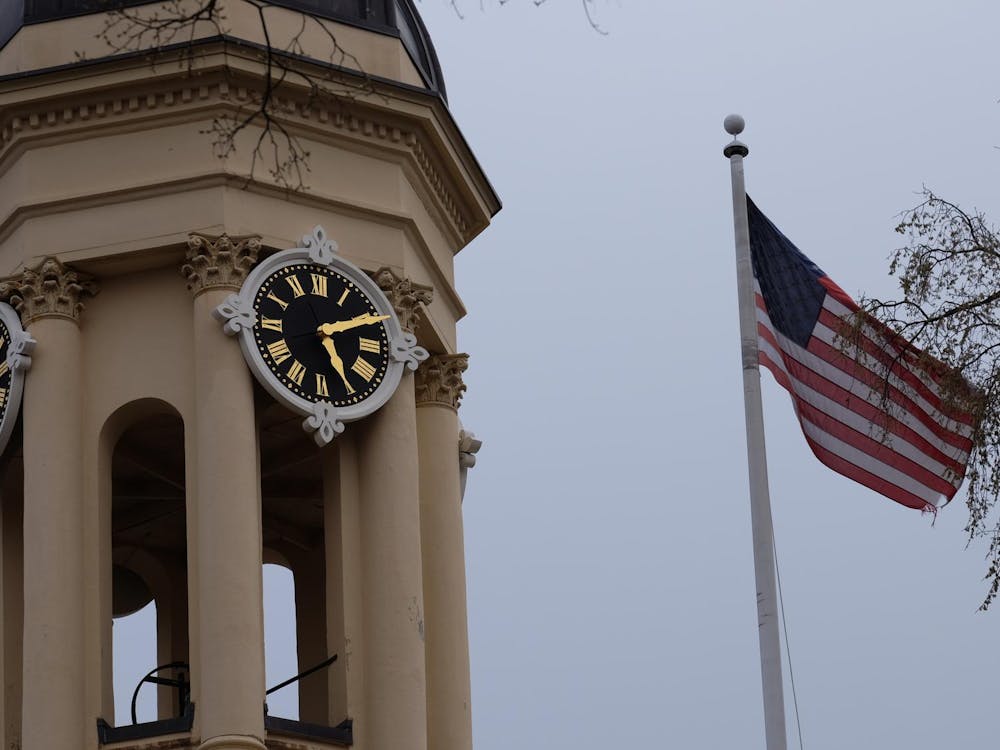The day was not so great, however, for gay Americans. By large margins, Arizona and Florida voted to add clauses to their state constitutions to define marriage as a union between a man and a woman. Arkansas passed a measure that prohibited unmarried sexual partners from adopting children; proponents admitted that it was aimed at prohibiting gay people from adopting.
The most shocking victory wasn't Barack Obama's, which had been predicted for weeks - it was the victory of Proposition 8 in California. Advocates and opponents spent a record total of $73 million on Proposition 8. Considered a liberal bastion in recent decades, California has been a safe haven for gay people to marry ever since the California Supreme Court declared same-sex marriage legal in May. That is, until its voters reversed the Court's ruling and banned same-sex marriage again on Tuesday. Interestingly, the increase in black voters going to the polls for Obama may have led to majority support for Proposition 8; black voters supported the proposition two to one.
As a liberal Californian, the return of the ban pains me. As the saying goes, "today California, tomorrow America." California is considered a political, economic and cultural leader in many fields: the high tech industry, healthcare, fashion and music, greener environmental policies and more. It was four percentage points away from being a trendsetter for gay rights, but now that issue will take a back seat for several years, if not several decades.
Listening to friends back home and friends on our fairly liberal campus, I feel as if Obama's win has been forgotten, and people have moved on to focusing on this result in California. People are afraid that gay people will never be treated like normal citizens in the United States and will be left with civil unions. It even got to the point where a few friends and I joked that, after prohibiting gay marriage and gay adoption, mandating the abortion of gay babies outed via genetic screening would be a national issue in a few years, just to get rid of gay people completely.
I tend to forget that Princeton University, the so-called "most conservative" Ivy, is much more liberal than the state of California and perhaps just as liberal as the Bay Area. We have several programs and even an LGBT Center in Frist Campus Center to support the LGBT community. The wide liberal bias makes it difficult for a large number of us to imagine why the country still has not legalized gay marriage. In California, our generation - those under 30 - voted overwhelmingly (more than two to one) against Proposition 8.
Do Tuesday's results mean that America will remain in this gray zone where gay people receive the benefits of civil unions but don't get to call it marriage? It's likely to be this way for a long time. But the LGBT community won't acquiesce to the current status quo. Even though they're receiving the same rights, they don't want to be treated like second-class citizens, and they'll fight it. Straight and gay people alike will continue to file lawsuits and campaign until they get what they want.
It took a while from the abolition of slavery until black people got to the Civil Rights Movement, but they got there and got their rights. We even elected a president of color, revealing that America is becoming more tolerant of its cultural diversity. A non-Protestant president was elected in 1960, and one woman in particular will likely be gunning for the White House in 2012. But whatever your stance on Proposition 8, I'm going to say that eventually gay people will get their rights and get to call their partners their spouses. No politician will admit it, but gay people will get equal rights some day. Gay president? Very likely. Some already claim James Buchanan and Abraham Lincoln were gay. But as long as America stays afloat as a democracy, it is probable that an openly gay president will eventually be elected.
Already largely supportive of gay marriage, our generation will help propel this trend toward legalizing gay marriage. But for now, gay rights advocates will have to accept that the rest of the country isn't ready yet and endure the obstacles that fall in the way. American minorities have a history of persevering, and America has a history of responding and opening its doors to them.

If this election could happen for blacks, marriage can happen for gays. It might not happen in our lifetime, but whether you like it or not, all Americans - regardless of sexual orientation - will inevitably have the right to marriage one day.
Ben Chen is a mechanical and aerospace engineer from Los Altos, Calif. He can be reached at bc@princeton.edu.








